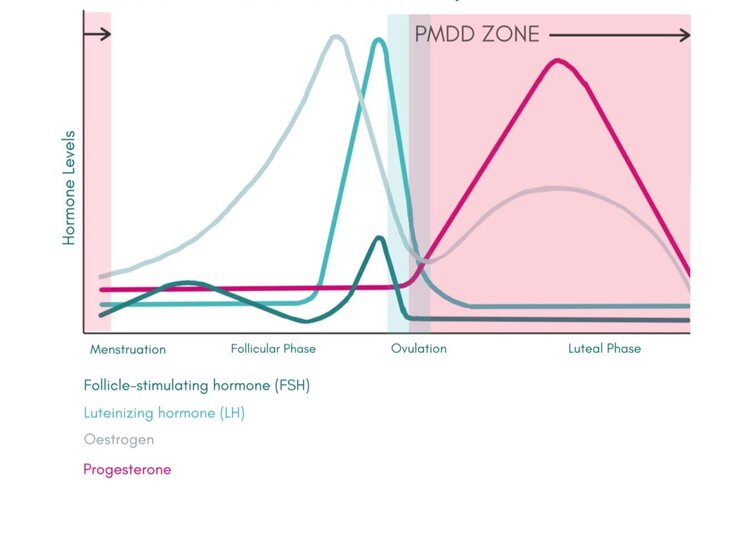PMS/PMDD
PMS
PMS has potential to interfere with a persons quality of life, interpersonal relationships, or ability to attend work or school (American College of Obstetricians and Gynecologists). PMS symptoms are generally more manageable than PMDD and do not require prescription medication including antidepressants/SSRI's. PMS is also not classified as a mental illness in the Diagnostic and Statistical Manual of Mental Disorders, 5th Edition (DSM-5), while PMDD is.
PMDD
PMDD is characterized by a cluster of mood symptoms that recur in the luteal phase of most menstrual cycles over the course of a year. An estimated 2-8% of women meet the criteria for PMDD. PMDD may be mild, moderate, or severe. PMDD is the only form of premenstrual disorder currently classified in the DSM-V. While PMS and PMDD are often used interchangeably in mainstream media and popular culture, the etiology, diagnosis, and treatment widely differ. It is important to use the correct terminology when discussing PMDD so that awareness, education, and treatment may be correctly achieved. PMDD is not diagnosed due to hormonal imbalances, rather, an emotional and or physical reaction to hormonal changes.
How do I get help?
An official PMDD diagnosis rests upon a GP. A GP will ask you to provide evidence supporting PMDD, it is encouraged you track your symptoms and provide a timeline of this. PMDD has only been recognized as a Mental Health disorder since 2013, so if your GP is not supporting you it is worth shopping around.
A symptom tracker can be found in the resources link below. Once you receive a diagnosis you can work with your GP to find options that may work for you including life style changes, antidepressants, or the pill.
Tools & Resources | IAPMD | PMDD Self-Screen | IAPMD

